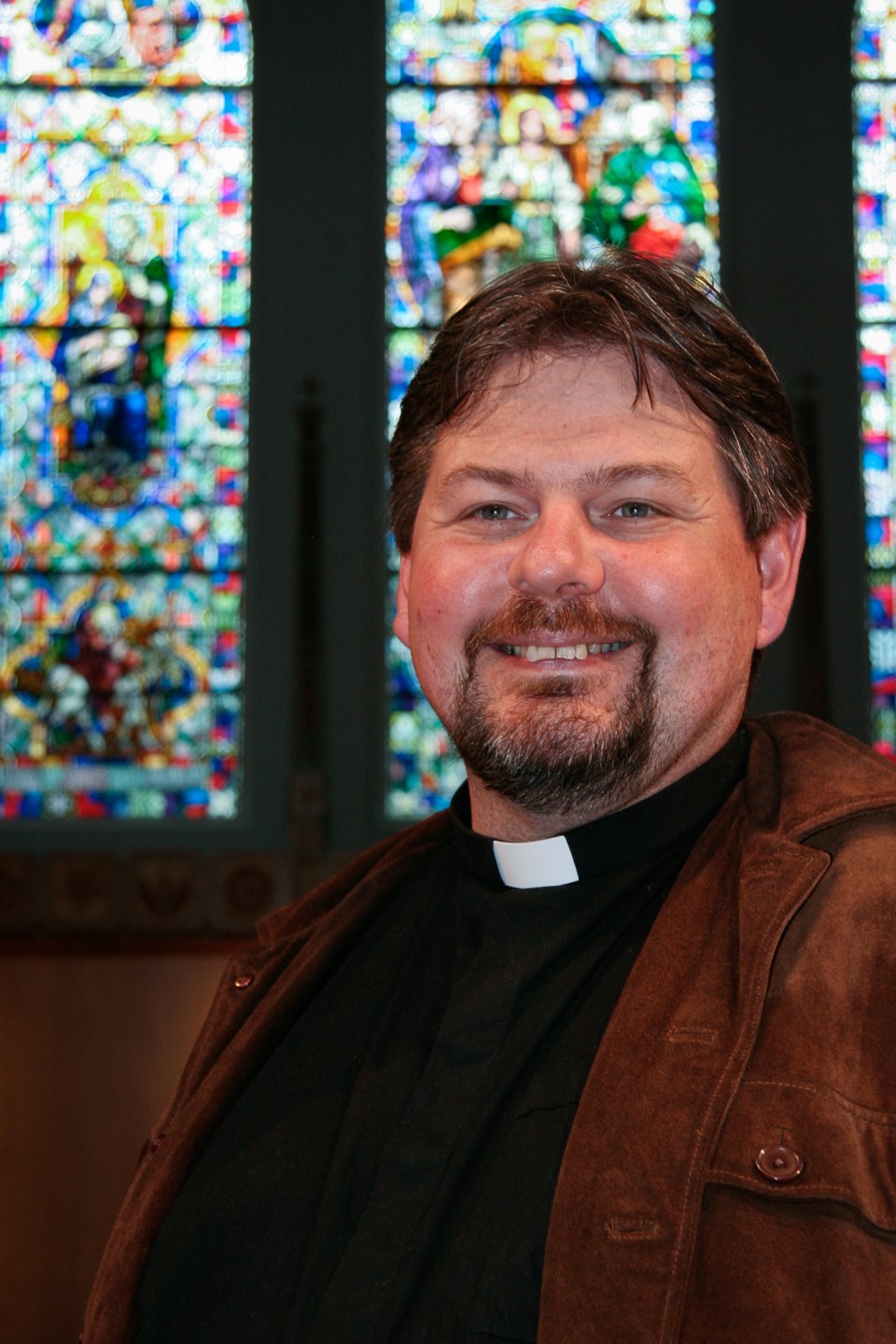We are about seventy-five percent of the way through Lent. This is important to me because I have committed to writing a thought every day to post on our Church website ŌĆō itŌĆÖs a kind of Lenten discipline, I suppose, and has certainly been a tougher experience than giving up chocolate or wine or whatever.╠² The theme of this daily exercise has been ŌĆśEucharistŌĆÖ ŌĆō the service which is at the heart of most Anglican and Roman Catholic worship, which is also known as Holy Communion, the Mass, or The LordŌĆÖs Supper, depending on oneŌĆÖs tradition.
ItŌĆÖs been a good, though hard, discipline because it has made me look again at why we do what we do in the act of worship which is the foundation of our community gathering, on Sundays and throughout each week.╠² It has made me ask questions of the meaning behind the actions and the words we use in church, and has challenged my casual acceptance of the way we do things.╠² I have had to think outside of the worship box that I so often find myself contained within.
ItŌĆÖs not a bad thing to ask questions as to why we do things. And why we donŌĆÖt do things.╠² To be willing to examine all of what we do and what we are, and to grow in our self-awareness.
ItŌĆÖs important, for those of us who are people of faith, not just to do things because someone, somewhere, has said ŌĆ£thatŌĆÖs what we doŌĆØ ŌĆō but to hold up to the light the details of our lives and our way of doing things.╠² The great philosopher Socrates is credited by Plato as saying, during the trial which led to his death "An unexamined life is not worth living", and indeed faith ŌĆō at its best ŌĆō encourages us to take stock, to step back, to look at ourselves and the world and consider how it measures up to the ideals, hopes, and standards which are the foundation of our faith life.
There is an ancient practice, encouraged by the Religious Order known as the Jesuits, of the Examen ŌĆō a deliberate and careful examination of oneself and oneŌĆÖs place in the universe day by day. It encourages us to ask ourselves that which we have achieved, and where we have not lived up to our own hopes and standards.╠² It has five constituent parts (taken from ╠²) :
1. Become aware of GodŌĆÖs presence.
2. Review the day with gratitude.
3. Pay attention to your emotions.
4. Choose one feature of the day and pray from it.
╠²5. Look toward tomorrow.
At the heart of any faith tradition is a desire to be more aware, of ourselves, of others, of the world around us, and of the Divine who is at the heart of life.╠² Even for those who would not claim any kind of ŌĆśreligionŌĆÖ, the discipline of self-examination, meditation, centring prayer, stillness, reflection can offer us a way of being in tune with who we are and how we relate to the world around.╠² Growing in awareness of our place in the world, and our reaction to all that we experience in life can help us in getting to grips with all that we might encounter.╠² Knowing those things which cause us anxiety, or where our fears are, or those things which bring us joy can assist us in enduring the difficult times we face, and enjoying the good things as deeply and broadly as we possibly can.╠²
Like my own Lenten discipline, this may not always be easy, and is best done with the help of a spiritual guide. If we look deeply into ourselves we may not like what we see, and to have a companion on this journey can make it easier to see the road through our darker parts to the destination of greater self-knowledge, and a greater sense of our place in the world.
These traditions, of prayer and silence, self ŌĆōawareness and self-examination are all a part of the many and varied spiritual traditions of the world. They may go hand in hand with the study of ancient wisdom, and of being a part of a community which is on a similar journey.╠² A spiritual community can ground us in a sense of common purpose and common desire to learn and grow.
Wherever we find a place to re-examine ourselves, and to grow in our connection with the world, with God (however we might understand the idea of God) and with who we are: those places are valuable and worth cherishing and paying attention to.╠² Enjoy the journey.
 Alastair McCollum╠²is Rector of St. John the Divine Anglican Church in Victoria. He has a passion for the Gospel, motorbikes and bike culture, worship, philosophy, theology, guitars, single malt whisky, real ale, cinema and all things French.╠²You can find Alastair at the church website: ╠²and╠²on his blog:
Alastair McCollum╠²is Rector of St. John the Divine Anglican Church in Victoria. He has a passion for the Gospel, motorbikes and bike culture, worship, philosophy, theology, guitars, single malt whisky, real ale, cinema and all things French.╠²You can find Alastair at the church website: ╠²and╠²on his blog:
You can read more articles from Spiritually Speaking


